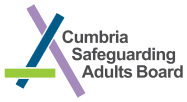A Care Act Advocate and an IMCA have different roles within safeguarding adults and will both work in different ways depending on whether the person is able to give the advocate instructions. This is called instructed and non-instructed advocacy.
An IMCA will work under the instruction of the person who will make the decision on the person's behalf. This is called the decision maker who is usually a social worker, doctor or health professional. The IMCA will gather the person's feelings, wishes, values and beliefs, review relevant records and consult with others involved in the person's care (as directed and agreed by the Safeguarding Manager), with regards to proposed protective measures or protective measures already taken. The IMCA will then report to the Decision Maker who then has a duty to consider the IMCA's findings when making their decision.
The Care Act Advocacy role is broader and where the person is able to give instructions, the advocate will support the person to:
- Understand and engage in the process
- Understand their rights and choices
- Tell people what is important to them
If the person is able to give instructions, the advocate will need consent from the person to attend any meetings on their behalf and this includes strategy meetings. This is because the advocacy relationship is built on trust and advocates should not be given information if the information is not being shared with the person.
When a Care Act Advocate works as a non-instructed advocate, the advocate will work in a similar way to the IMCA by gathering the person's feelings, wishes, values and beliefs. However, the Care Act advocate will support the person to engage in all aspects of the safeguarding process rather than just the protective measures.
The next table summarises both Care Act Advocacy and IMCA eligibility criteria.
| Independent Advocate (Care Act) | IMCA |
| Individual subject of a safeguarding enquiry or review AND Substantial difficulty in being involved in the safeguarding enquiry or review AND Nobody appropriate to support individual to engage and/ or represent individual's feelings, wishes and values | NHS or LA proposes to take or has taken protective measures AND Individual lacks capacity to consent to protective measures AND NHS/LA considers IMCA involvement of benefit including whether family members/ friends implicated in safeguarding |
There are times in safeguarding adults when a person may be eligible for both IMCA and Care Act Advocacy. The Care Act 2014 Guidance states 'Where an independent advocate has already been arranged under section 67 Care Act or under the Mental Capacity Act, unless inappropriate, the same advocate should be used.' 7.24. Below are some case examples:
Care Act Advocacy Referral
Connie, an inpatient recovering from a hip replacement operation with limited mobility, had been unsettled through the night, calling out regularly. The nursing staff were incredibly busy so did not attend to Connie when she continued to call. In the morning, Connie was found in her bed, heavily soiled, by a nurse who had just come on to shift. Connie informed the nurse she had been calling for help but was ignored. The nurse reported the incident as a safeguarding alert. Through the safeguarding enquiry, no protective measures were proposed so an IMCA was not instructed. The Safeguarding manager considered whether Connie needed independent support to have her feelings, wishes and values fed into the Safeguarding process and, because Connie has no family, decided to appoint a Care Act Advocate to support Connie to engage in the process.
IMCA Referral
Albert was admitted to hospital after a stroke which has left him in a semi-conscious state with no verbal communication and limited movement down his right side. Albert has multiple visitors who each inform nursing staff they will be looking after the person's affairs and give conflicting information about the person's financial arrangements and feelings regarding the other visitors. The nursing team have concerns regarding possible financial abuse and raised a safeguarding alert. Through the safeguarding enquiry, a protective measure of restricting Albert's contact with the visitors is proposed. Albert is assessed as lacking capacity to consent to the measure and an IMCA on Albert's behalf.
